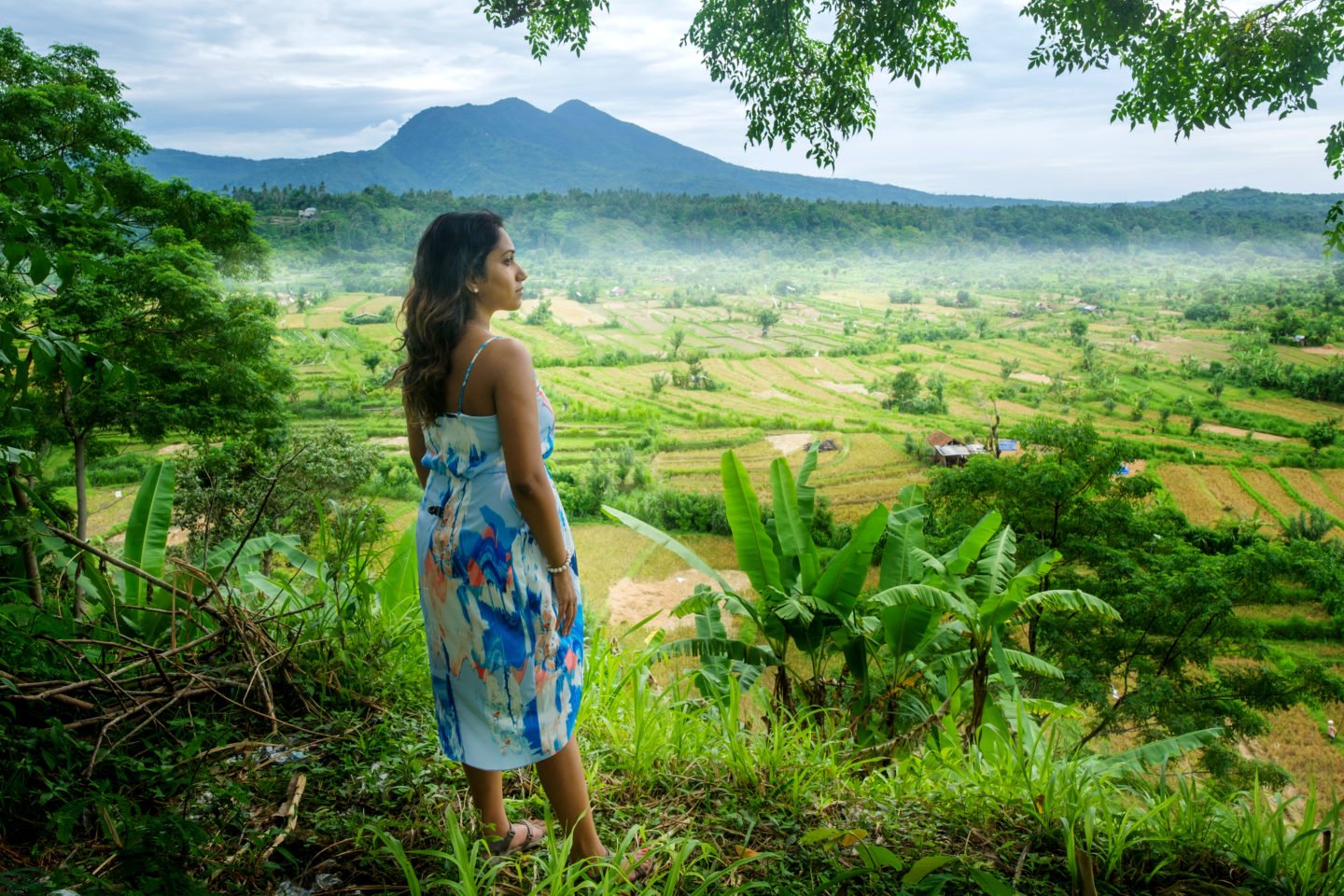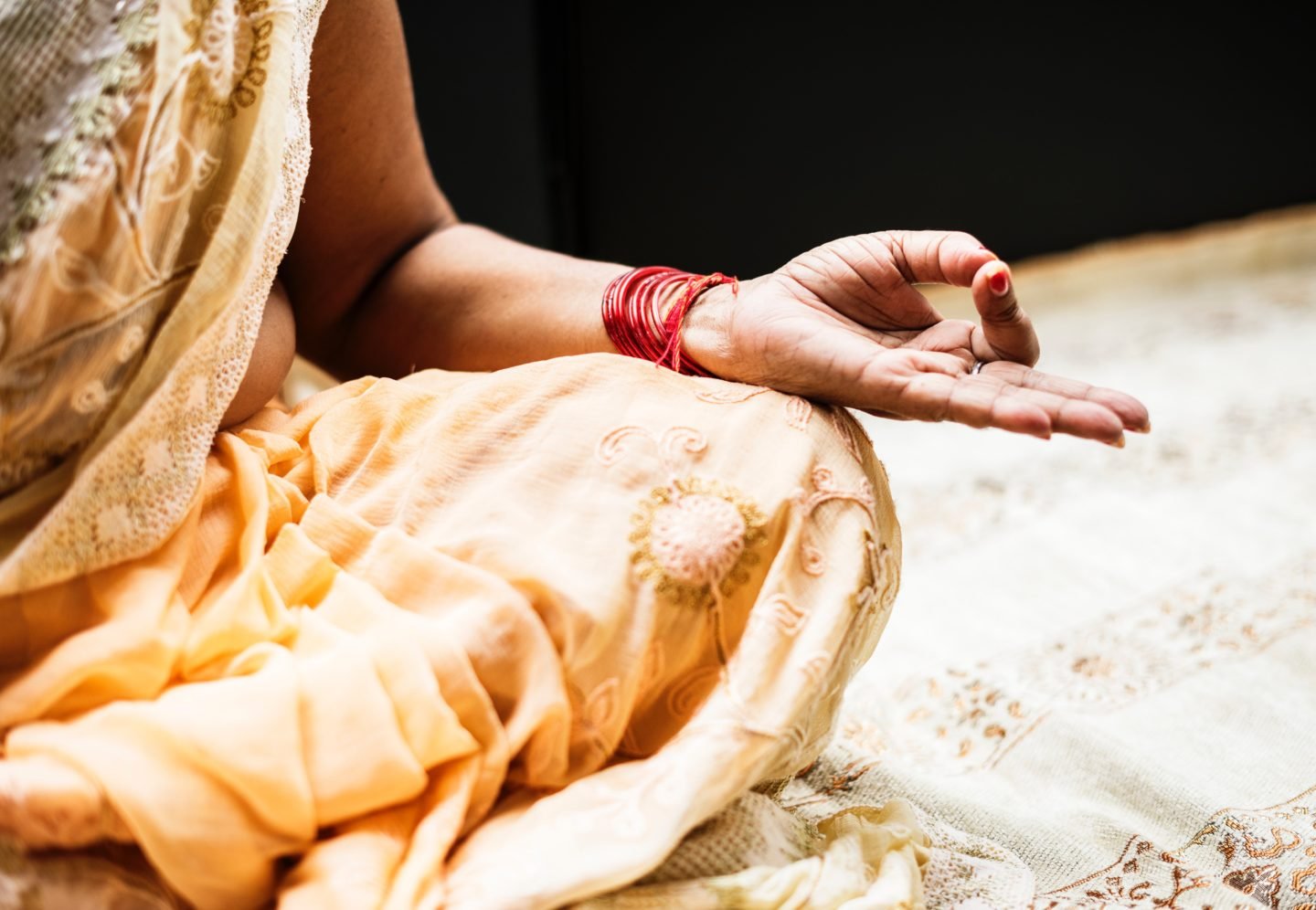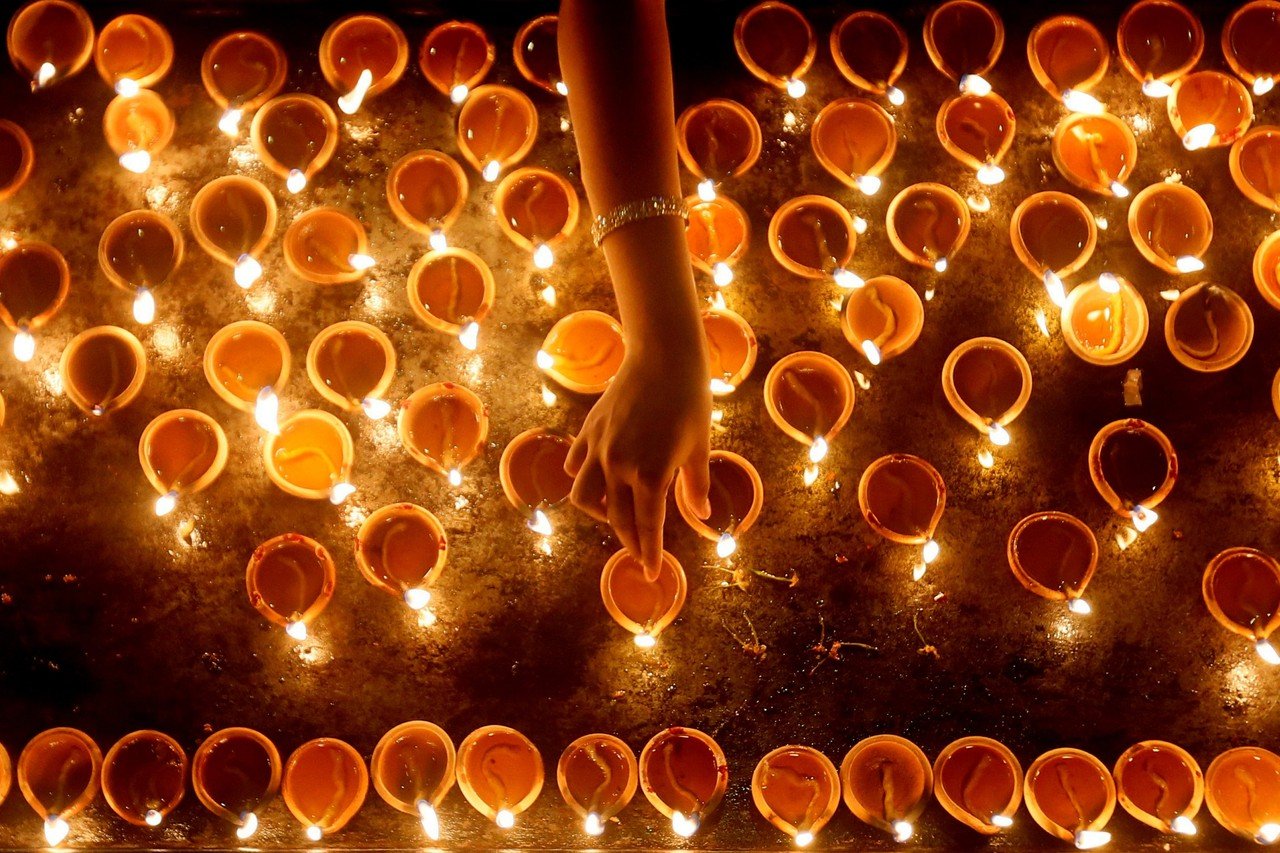How to Spread Love and Hope During Times of Fear

I was born in Sri Lanka, a small island nation off the coast of southern India, in 1981. At that time the country was rife with civil war. An island nation filled with unimaginable beauty, from the turquoise blue seas surrounding it to the lush green tea-covered hills of the island’s center, but it was drowning in pain and blood for almost three decades.
In 2009, the war came to an end but not without a huge amount of pain and suffering for all those involved. (You can read a very high-level summary of Sri Lanka’s civil war in this New York Times article). When it finally ended, the country believed that the reign of terror was over but their fear was reawakened on April 21, 2019, when a series of coordinated attacks on Easter Sunday killed over 250 people and injured over 500 more.
I’ve been working with my cousin, Nisansala, in Sri Lanka to collect donations to aid victims of the attacks. In the course of our email exchanges to coordinate the distribution of those funds, she asked me to write something that might be helpful to those in Sri Lanka and other areas where violence has placed families and communities into a place of fear and uncertainty, and this is what I’d like to share.
Let me pause here to say that I was extremely fortunate in that I have never been around any such violence. My parents left Sri Lanka in 1983 when I was two and my younger sister was just a few months old. The war was still going strong when my dad received a scholarship to study for his doctorate in Marine Geology at the University of California, San Diego. He and my mother decided to pursue the opportunity and we have lived in Southern California ever since. I have never known anything but a peaceful life so my thoughts on the subject should be taken in the context of that experience.
Hatred is a cycle that we can break
Ghandi, Martin Luther King, and so many others have stood against violence and oppression through peaceful protest, even when the worlds around them were disintegrating into terror. Through their actions and their leadership, massive change was achieved. They are proof that one person, with love in their hearts and a hope for peace, can change the world.
They didn’t have hundreds of thousands of supporters when they first started sharing their message. They didn’t have PR agencies and social media to spread the word. They had a belief that rested in peace and love and they LIVED it every single day. They showed up and they showed everyone what it looked like to stand up for what was right without harming anyone around them.
We can do the same. We can show up at work, with our friends, on social media, and say that every single life matters. That regardless of ethnicity, skin color, socio-economic status, gender, sexuality, we are all human and that makes us the same. If you have a spiritual practice, you might say that we are all from the same source energy and what is done to one is done to the whole and so we need to love every single person as if they were us.
Know that violence or hate comes from your ego, not your soul
The part of you that wants another to hurt because they hurt you: that’s your ego. That’s not who you truly are. You are an incredible soul who descends from pure love. Acting out of fear, wishing harm on others - those are ego-protection mechanisms. They are not driven by the soul.
Don’t make assumptions
When we are trying to make sense of things, it can be incredibly easy to make assumptions about why things happened. Why the attackers targeted who they did, what their motivations were, why we weren’t able to stop them. If confirmed information is made available to us, then we can sharpen our view of the events that unfolded, but until such time, making assumptions about the who and why can be confusing at best or dangerous at worst. Focus on what you know is fact and shift your blame into curiosity.
Learn more about the “other”
It’s so important to remember that even though we may have different languages, styles of dress, and religious traditions, all people want the same basic things: health, peace, safety, and belonging (see Maslow’s Hierarchy of Needs). When we take the time to learn more about one another, we find that ultimately we have more in common than not. Whether I wear jeans and a t-shirt to a temple and you wear a burka to a mosque, we are both going to connect with a higher power, whatever we may call it/him/her.
Many of us have grown up in diverse neighborhoods where as children we had to the opportunity to learn about different cultures. One of my best friends growing up (and to this day) was half Indian, half Bahraini and so I got to learn a little bit about each culture (and enjoy the amazing food her mom made). What struck me then is that even though the cultural differences existed in how our families prayed or celebrated holidays, she and I really just wanted to watch Disney movies and read books.
We will find that there is no “other”; there is simply humanity that longs for peace and love. We are all cut from the same cloth; we just show up in this world wearing different suits.
Don’t spread fear
It’s so easy to get caught up in the cycle of gossip and fear-mongering but we can refrain from spreading hate by only sharing what we know is true. When we hear a rumor that incites alarm as opposed to sharing helpful information to keep people safe, we are spreading fear and fear can make people act in a way that is not aligned with their true nature. If you receive information from a legitimate source that people should stay away from a potential target, share the news with others, but only the facts. Do not contribute to the fear-mongering and terror-incitement but stay alert and share valid information.
Fear·mon·ger·ing (noun) - The action of deliberately arousing public fear or alarm about a particular issue.
Show up every day and spread messages of love
A Sinhalese girl walking to school can show kindness and friendship to a Muslim girl walking alongside her. The conservative Christian man can help a transgendered Asian man take his groceries to the car. And they can do it publicly, in front of friends and strangers alike. Through simple act but powerful acts, we can show our peers what acceptance and oneness look like by modeling it. Not once, not twice, but every single day.
Take care of others
And in this case, TELL PEOPLE that we are taking care of others. Normally I wouldn’t advocate that people brag about donations made or assistance provided, but in times like this, I think we need to use the demonstration of love-giving as a form of social proof. This is especially important in diverse nations like Sri Lanka and the US where many ethnicities and cultures co-exist.
If I were to tell you that I was volunteering at a hospital to help victims and that I am feeling so fulfilled by being of service, it might encourage you to consider doing the same. And if ten people told you that they were volunteering at that same hospital, you might be ready to sign up for a shift.
We look to our friends and families for cues so in this case, let’s be the ones giving the cues.

Practice Loving-Kindness Meditation
This is one that anyone in the world can do, regardless of whether they are living amidst violence or hate or if they simply want to send love to those who are. Loving-kindness, also known as maitri in the Buddhist tradition, is the intention to offer joy and happiness to others.
The practice begins first by offering loving-kindness to ourselves, then extending it to loved ones, and then extending it to all people, and finally (my favorite) extending it to all sentient beings.
The Four Immeasurables or The Four Limitless Qualities as a Traditional Buddhist Prayer
May I enjoy happiness and the root of happiness.
May I be free from suffering and the root of suffering.
May I not be separated from the supreme happiness which is devoid of suffering.
May I remain in the boundless equanimity, free from passion, aggression, and prejudice
May all sentient beings enjoy happiness and the root of happiness.
May they be free from suffering and the root of suffering.
May they not be separated from the supreme happiness which is devoid of suffering.
May they remain in the boundless equanimity, free from passion, aggression, and prejudice
If you are feeling concerned that you might not be capable of offering loving-kindness to everyone, especially those who perpetrated violence, renowned Buddhist teacher, Pema Chödrön says in her book, “The Places That Scare You: A Guide to Fearlessness in Difficult Times” that:
“We start just where we are, where the aspirations feel genuine. We begin by acknowledging where we already feel love, compassion, joy, and equanimity. We locate our current experience of these four boundless qualities, however, limited they may be: in our love of music, in our empathy with children, in the joy we feel on hearing goodness, or in in the equanimity we experience when we’re with good friends. After we practice for ourselves and those near us, we stretch even further: we send goodwill toward the neutral people in our lives and also those we don’t like”
Pema Chödrön
Choose Courage
Nisansala shared with me that she has been scared to take her newborn daughter out to public places following the attack. She said that many parents in Sri Lanka were feeling the same, keeping their children from returning to school for fear that the attacks might not be over. I can’t imagine what that would be like so I thought I would share her beautiful words here:
“On Vesak day I decided that I was going to take her to our family's home temple in Dehiwala the once patronized by Munasinghes (our family) for the past four generations and with that, I thought, “I won't let the fear the terrorists want me to feel dictate how I live. They want me to stay home and not go anywhere.” And the feeling I had when I was at the temple was simply amazing, I knew I had not let them scare me into a corner; that I was stepping out. So at some point, you have to stand up and say, “This is my country, my community, my people and you can't bring your darkness and hold a shadow over us forever.”
Nisansala Munasinghe
So many others are living in countries where terror has tried to keep them living in fear. I am in awe of those who refuse to let terror and fear win. I know it can’t be easy, especially if you have young children, but even small acts of courage are powerful.
Brené Brown says that “Every time we choose courage, we make everyone around us a little better and the world a little braver.” Because I believe that everything is energy, I like to think that:
Every time we choose courage we raise our vibration and thus the vibration of our entire community is raised as well.
So many others are living in countries where terror has tried to keep them living in fear. I am in awe of those who refuse to let terror and fear win. I know it can’t be easy, especially if you have young children.
A Next Step
I can only imagine the feelings of fear, uncertainty, and helplessness that one might feel living in a time and place where bad things are happening to innocent people. The suggestions that I offer are small ones but perhaps if one person does them and shares them with one more person, small pockets of our beautiful humanity can start to transform from fear into love.
To spread love and hope during times of fear and uncertainty:
- Be the one to break the hate cycle
- Recognize a desire for retaliation as an ego/fear-based driver; it is not your soul’s desire
- Don’t make assumptions
- Take care of others
- Tell your friends how they can take care of others
- Practice loving-kindness meditation
- Choose courage
I’m wishing everyone a beautiful and peaceful life and sending loving-kindness to all sentient beings. 🙏


